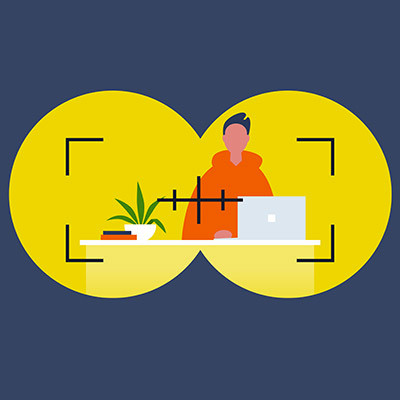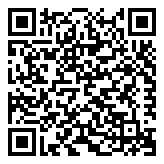- Home
- About Us
- IT Services
- Managed IT Services
- @Home
- @Work
- @School
- @Worship
- Outsourcing your IT
- Remote Workforce
- vCIO
- IT Consulting
- Comprehensive IT Support
- Remote Monitoring & Maintenance
- IT Vendor Management
- Co-Managed IT
- VMware
- 24/7 Help Desk
- Microsoft Hyper-V
- Professional Server Support
- Business Computing Assessment
- Staffing Services
- Desktop Monitoring and Management
- Cybersecurity Services
- Cybersecurity Overview
- Dark Web Monitoring
- Phishing Simulation
- Network Security
- Fully Hosted Security as a Service
- Cisco Security Solutions
- SOPHOS Security Solutions
- Unified Threat Management
- Content Filtering
- Access Control Solutions
- Endpoint Security Solutions
- Mobile Device Management
- Email Encryption
- Spam Protection
- Compliance Standards
- Penetration Testing
- Multi Factor Authentication
- Security Cameras
- Asset Tracking
- Cloud Computing Services
- Industry Specific
- IT for Healthcare Providers
- IT for Manufacturing
- Supply Chain and Logistics
- IT for Engineers and Architects
- IT for Insurance Companies
- IT for Accountants
- IT for Nonprofits
- Human Resources as a Service
- IT for Education
- IT for Hospitality
- Residential Computer Repair
- Point-of-Sale Technologies
- Health Care IT
- Electronic Medical Records
- IT for Dentists
- IT for Law
- Retail IT
- eManagement
- IT for Financial Services
- Data Services
- Hardware Services
- Software Services
- Business Communication
- Media & Internet Services
- Managed IT Services
- Understanding IT
- Blog
- Support
- Contact Us
- Home
- About Us
-
IT Services
-
Managed IT Services
- @Home
- @Work
- @School
- @Worship
- Outsourcing your IT
- Remote Workforce
- vCIO
- IT Consulting
- Comprehensive IT Support
- Remote Monitoring & Maintenance
- IT Vendor Management
- Co-Managed IT
- VMware
- 24/7 Help Desk
- Microsoft Hyper-V
- Professional Server Support
- Business Computing Assessment
- Staffing Services
- Desktop Monitoring and Management
-
Cybersecurity Services
- Cybersecurity Overview
- Dark Web Monitoring
- Phishing Simulation
- Network Security
- Fully Hosted Security as a Service
- Cisco Security Solutions
- SOPHOS Security Solutions
- Unified Threat Management
- Content Filtering
- Access Control Solutions
- Endpoint Security Solutions
- Mobile Device Management
- Email Encryption
- Spam Protection
- Compliance Standards
- Penetration Testing
- Multi Factor Authentication
- Security Cameras
- Asset Tracking
- Cloud Computing Services
-
Industry Specific
- IT for Healthcare Providers
- IT for Manufacturing
- Supply Chain and Logistics
- IT for Engineers and Architects
- IT for Insurance Companies
- IT for Accountants
- IT for Nonprofits
- Human Resources as a Service
- IT for Education
- IT for Hospitality
- Residential Computer Repair
- Point-of-Sale Technologies
- Health Care IT
- Electronic Medical Records
- IT for Dentists
- IT for Law
- Retail IT
- eManagement
- IT for Financial Services
- Data Services
- Hardware Services
- Software Services
- Business Communication
- Media & Internet Services
-
Managed IT Services
- Understanding IT
- Blog
- Support
- Contact Us
We Define IT Consulting
As a Boss, Can I Monitor My Employees Through Their Webcams?
One of the great obstacles many businesses have to remote work is the fact that, well, the team will be remote—not in the office, safely under supervision. This has led many to consider using the webcams installed in their employees’ devices to keep tabs on them. Let’s explore the idea of monitoring your team, and why it probably isn’t a good one.
Today’s Workers are More Concerned about Privacy Than Ever
Privacy has reached an unprecedented level of public awareness, so while not everyone is up to speed on all the best practices they should be, the concept of privacy is at least still held in high regard. As a result, some people may bristle at the thought of their boss digitally checking in on them—particularly while they are working from the presumed privacy of their own home.
Of course, there are some protections in place in terms of personal privacy, like the Electronic Communications Privacy Act of 1986 (ECPA), but the context matters greatly. Furthermore, some of these protections shift where employment is involved in the interest of the business’ protection.
Why a Company Would Monitor its Employees in the First Place
There are countless reasons that a business might want to keep an eye on its employees as they are using company technology, from security concerns to compliance needs to plain old distrust… despite feelings like ExpressVPN recorded in a survey of 2000 workers:
- 59 percent of those surveyed felt increased anxiety and stress when being digitally monitored by their organization
- 43 percent saw this kind of monitoring as a violation of trust
- 36 percent attributed feeling pressure to work longer hours due to it
- 28 percent claimed monitoring practices made them feel underappreciated
Make no mistake, this kind of monitoring is not a new thing. However, when remote work sent so many back home, away from the office, many supervisors simply did not feel comfortable losing their eyes on their team. This is why 78 percent of employers are tracking their employees, with 73 percent using recordings collected during this tracking to inform the performance reviews they would conduct on their team members.
Does an Employer Even Have the Right to Monitor Employees?
Well, here’s the thing: even if an employer doesn’t have a valid reason to monitor an employee’s device, there’s an excellent chance that they don’t need one. Consent to monitoring is frequently included in employee handbooks, meaning that many employees agree to it as a condition of their employment (whether or not they read the handbook and realize it).
How Can an Employer Balance How They Monitor Their Team?
So, while we’ve established that an employer has the capability to monitor their remote workforce, we haven’t touched on where the line might be. Various tools are available right now that offer different levels of oversight, from collecting keystrokes to screen captures to application monitoring. If it proves necessary, you can use these tools to help evaluate your team’s performance.
Communication is Essential
The crux of this issue is—particularly when remote work comes into play—that monitoring your team can feel isolating to the very team you’re keeping an eye on. Instead of checking up on them in the background, you can help improve their feelings by communicating with them more directly.
At the End of the Day, It’s a Question of Trust
The extent of the monitoring you undergo really comes down to how much you believe that your team will stay diligent, even with nobody breathing down their neck.
We can help ensure your team members are equipped with the tools they need to do their jobs. Find out more about the solutions we offer by calling We Define IT!
About the author
Mr. Angaza has been changing the face of IT service for over 20 years. His unending commitment to technical excellence is only outmatched by his dedication to customer service and satisfaction.
Don't have an Account Yet?
You have to register to leave a comment, register here.


Comments